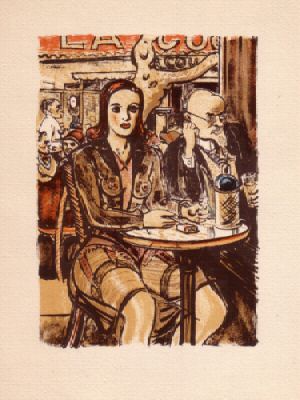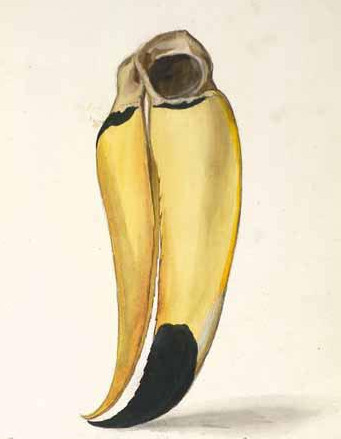The Undeservedly Obscure Dead
 Ladies, gentlemen, children up past your bedtime, and unreconstructed degenerates of all sorts: I give to you the newest in our line of remembrances of the Undeservedly Obscure Dead. Her name is Mme. Antonie Brentano (nee, von Birkenstock). Born in Vienna on April 28, 1780 to a noble family (her father was the Baron von Birkenstock, an important man at the imperial court), she married Franz Brentano, a wealthy Frankfurt merchant in 1798. Certainly Mme. Brentano is obscure, but why is she undeservedly so? Because she cheated on her husband in 1812 in Prague.
Ladies, gentlemen, children up past your bedtime, and unreconstructed degenerates of all sorts: I give to you the newest in our line of remembrances of the Undeservedly Obscure Dead. Her name is Mme. Antonie Brentano (nee, von Birkenstock). Born in Vienna on April 28, 1780 to a noble family (her father was the Baron von Birkenstock, an important man at the imperial court), she married Franz Brentano, a wealthy Frankfurt merchant in 1798. Certainly Mme. Brentano is obscure, but why is she undeservedly so? Because she cheated on her husband in 1812 in Prague.You see Antonie Brentano was perhaps the loveliest girl at court in Vienna and loved her husband, a handsome, by all accounts kind, and very wealthy man, but she hated Frankfurt. This is Frankfurt two centuries ago when it was a dreary, provincial, industrial center on a filthy little river. It was certainly not the Imperial Court at Vienna where she was more comfortable. So Antonie spent as much time in Vienna as she could. That's where her sister-in-law introduced her to a man ten years her senior in 1811 who was famous in Austria and throughout much of Europe.
He was immediately taken with her and they struck up a friendship immediately. She became a great source of joy and inspiration for the normally depressive and moody man. The two of them would meet almost everyday and they met secretly in Prague in July of 1812 and consummated their love. He even wrote some music for her, called the Diabelli Variations. But more famously, Ludwig van Beethoven wrote her a letter. Found among his possessions after his death, by his assistant and biographer Anton Schindler, it was unusual for it's length and passion. He never named her, but called her his Immortal Beloved.
She is, perhaps, the most famous muse in history, as much as for her anonymity as for the fact that she was apparently so remarkable that she was the great love and inspiration of Beethoven's life. One must marvel at that fact. He was a notoriously difficult man. She must have been a particularly amazing person of no mean gifts herself, if only to put up with him and still push him further. So we salute you, Antonie Brentano, and wonder admiringly at what a truly awesome woman you must certainly have been.






0 Comments:
Post a Comment
<< Home